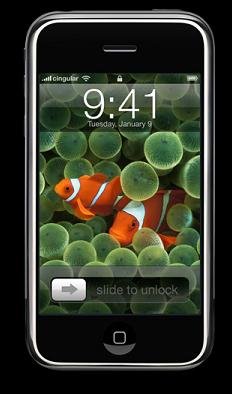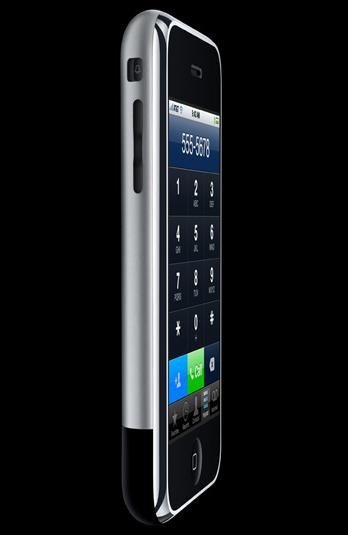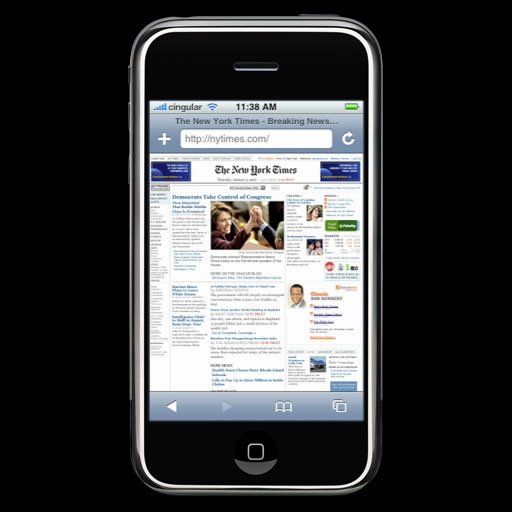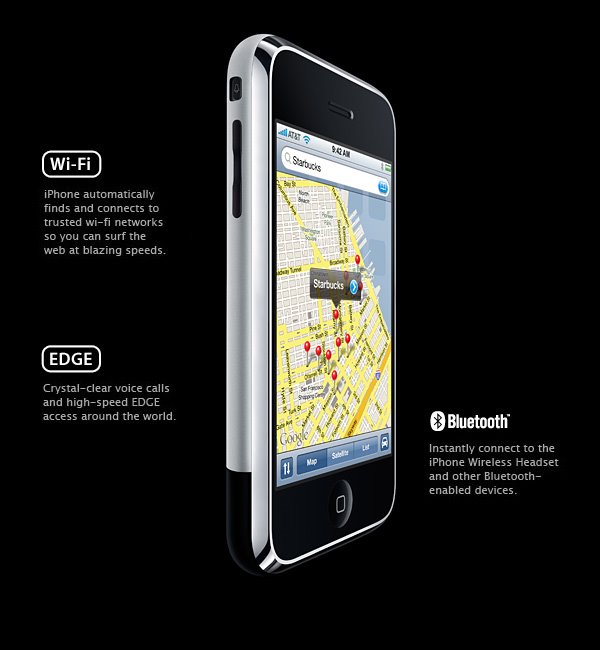AT&T will hold on to the iPhone for 5 years....
A report from 'USAToday' says AT&T will have exclusive distribution rights for the iPhone for 5 years in the United States.....
By Leslie Cauley, USA TODAY
The Apple iPhone, due out next month, has been breathlessly hailed as offering consumers the ultimate wireless experience.
It also could give AT&T, its exclusive U.S. distributor, the ultimate experience for a wireless carrier: an easy way to handcuff rivals and steal customers.
AT&T has exclusive U.S. distribution rights for five years — an eternity in the go-go cellphone world. And Apple is barred for that time from developing a version of the iPhone for CDMA wireless networks.
That ban is no small thing. AT&T rivals Verizon Wireless and Sprint are both CDMA shops. AT&T uses GSM, a global standard incompatible with CDMA.
Bottom line: If you want an iPhone anytime soon, you'll have to take your business to AT&T.
Stan Sigman, CEO of wireless at AT&T, makes no apologies for his tough approach.
"I'm glad we have (the iPhone) in our bag," he says. "Others will try to match it, but for a period of time, they're going to be playing catch-up."
Hardball is nothing new in the cellphone industry. But as white-hot growth finally begins to slow, it's getting downright desperate out there.
To keep the momentum, big carriers such as AT&T are rapidly expanding their stable of devices, a proven way to draw people into stores. They're also piling on features — media downloading and photo-sharing are hot — and tweaking calling plans.
Their common goal: add new customers and get them to stay put.
"It's guerrilla warfare," says Jane Zweig, CEO of market researcher The Shosteck Group. "They all want to say 'We're No. 1.' "
Roger Entner, a senior vice president at IAG Research, agrees. "They're battling for every customer."
Wall Street is the driver. Carriers are valued, in large part, on how many subscribers they add each month. That was a lot easier a few years ago, when it wasn't uncommon for cellphone companies to add 25% a quarter.
Now that the major carriers are elephantine in size, that's a lot harder to do. AT&T currently claims about 62.2 million customers. Verizon and Sprint have 60.7 million and 53.6 million, respectively.
About 78% of U.S. households have a mobile phone, says Charles Golvin, a wireless industry analyst at Forrester Research, vs. 53% five years ago. Total subscribers: about 210 million.
For the most part, Golvin says, anybody who wants a cellphone has one. Those who don't, he says, "are the very young, the very old and the economically challenged." Those groups are not particularly attractive to the big carriers, which also are valued on how much revenue per subscriber they generate.
Rustling up revenue
That leaves the carriers with one option, basically, for adding customers: steal them.
"Today's market is not about finding new opportunities," Golvin says. "It's about stealing somebody else's customers."
The AT&T and Verizon Wireless rivalry is particularly fierce. AT&T has slightly more customers; Verizon has more revenue. Both claim to be No. 1.
They also sparred over the iPhone. As previously reported by USA TODAY, Verizon passed on the opportunity to become the exclusive U.S. distributor, balking at Apple's demand for control over distribution, pricing, marketing and more. That left an opening for AT&T — then called Cingular — to cement a deal. (AT&T on Monday officially dumped the Cingular name and store signs now are being switched. The move came slightly ahead of schedule.)
Denny Strigl, Verizon's chief operating officer, decided to pass on the iPhone deal and says he has no regrets: "Time will tell" if he made the right call, he says.
Strigl doesn't think the iPhone will be that hard to compete against. Why? Because, he says, for five long years it will be tied to AT&T's wireless network. His point: A phone is only as good as the network it runs on, and he thinks Verizon's is better.
"The issue is not the Apple-ness of the iPhone itself, but with the cellular network that it is running on," Strigl says, picking his words carefully. "That will be the true test of the iPhone: What will the iPhone experience be?"
Given Apple's cultlike following, however, Verizon isn't taking any chances. Strigl says Verizon is already working with a manufacturer — he declines to say which one — on an answer to the iPhone.
"We do have a very good response in the mill," he says. "You'll see that from us in the late summer."
Source





No comments:
Post a Comment